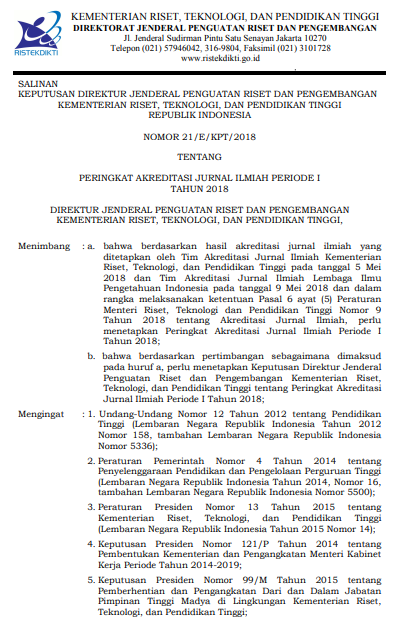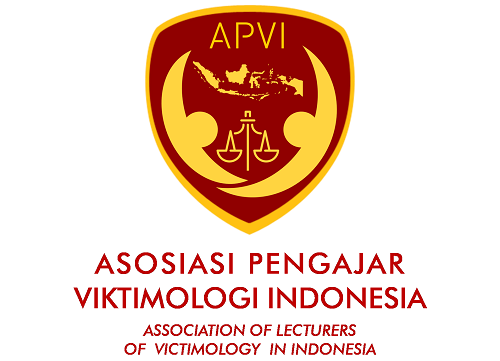Expectations and Reality of International Dispute Resolution
Abstract
If we look at the provisions contained in the United Nations (especially in its preamble), it will appear that the purpose of the establishment of the United Nations is international peace and security because the United Nations was indeed formed with the background of World War I and II. In contrast, if we pay attention to the provisions of the International Humanitarian Law, the war cannot be prevented. Instead, efforts are made to humanize war. Based on the research, it turns out that the United Nations is not a neutral organization. The United Nations is a political organization run by superpowers, especially The Big Five (United States, Soviet Union, England, France and China). These five countries have veto rights and other advantages so that in international dispute resolution, it often affects the final decisions. Some decisions from ad Hoc Courts, for example, are influenced by these big countries, such as the case of Saddam Hussein. Likewise, the US policy towards cases between Israel and Palestine and terrorism is also evident. Accordingly, this normative research with a case study approach was conducted by taking samples from popular cases in international political issues. The combination of analysis from international provisions with the facts should push the analysis to be more objective.
Keywords: International dispute resolution, United Nations
Full Text:
PDF View
References
Arlina Permanasari,dkk, Pengantar Hukum Humaniter. International Committee of the Red Cross, Jakarta 1999.
Ifdhal Kasim, Statuta Roma Mahkamah Pidana Internasional. Jakarta: Lembaga Studi dan Advokasi Masyarakat (ELSAM), 2000
Christian Reus Smith, “The Politic of International Law” (Cambridge University Press, 2004) terjemah oleh derrta Sri Widowatie, Penerbit Nusa Media, Bandung. 2015
Cherif Bassiouni, International Criminal Law Crimes, vol.1, Transnational Publishers New York, 1956.
Dian Wirengjurit, Kawasan Damai dan Bebas Senjata Nuklir. Alumni Bandung. 2002.
Huala Adolf, Hukum Penyelesaian Sengketa Internasional . Sinar Grafika, Jakarta. 2006
H.L.A.Hart, Konsep Hukum, diterjemahkn oleh M.Khozim dari buku aslinya yang berjudul The Concept of law” Penerbit Nusa Media, Bandung 2013
I Made Pasek, Hukum Pidana Internasional, Penerbit Prenada Media, Jakarta 2018
James Petras, Zionime dan Keruntuhan Amerika, Bagaimana Lobi Yahudi Menindas Negara-Negara Muslim dan Menghancurkan Amerika Serikat Dari Dalam (diterjemahkn oleh Epika Mustika Putro dari buku aslinya yang berjudul, Zionism, Militarism and the Decline of US Power. Penerbit Zahra Publishing House, Jakarta.2009.
Muhammad Nur Islami, Implementasi Hukum Humaniter Internasional dalam Menegakkan Pertahanan dan Keamanan dalam “Islam dan Urusan Kemanusiaan” ,PT Serambi Ilmu, Jakarta. 2015.
Robert Cryer, Hakan Friman, Darryl Robinson & Elizabeth Wilmshurst, An Introduction to International Criminal Law and Procedure, Cambridge University Press, Cambridge, 2010.
Zainab Abdul Aziz, Wajah Baru Perang Salib, Fakta-Fakta Konspirasi Dunia Kristen untuk Menghancurkan Islam (Jakarta: Qisthi Press, 2007) hlm.50
Charter of the United nations.
https://www.medcom.id/internasional/eropa-amerika/nbwjO2DN-diselidiki-atas-kejahatan-perang-as-malah-sanksi-pengadilan-internasional,
https://haluan.co/article/rogue-nation-mengapa-amerika-menentang-icc,
DOI: http://dx.doi.org/10.20884/1.jdh.2022.22.2.3222
Refbacks
- There are currently no refbacks.
JURNAL DINAMIKA HUKUM Indexed by :
 | Jurnal Dinamika Hukum | |
| Faculty of Law, Universitas Jenderal Soedirman | Copyright of Jurnal Dinamika Hukum | |
| Yustisia IV Building, Law Journal Center | ISSN 2407-6562 (Online) ISSN 1410-0797 (Print) | |
| Purwokerto, Central Java, Indonesia, 53122 | JDH is licensed under a Creative Commons Attribution 4.0 International License | |






